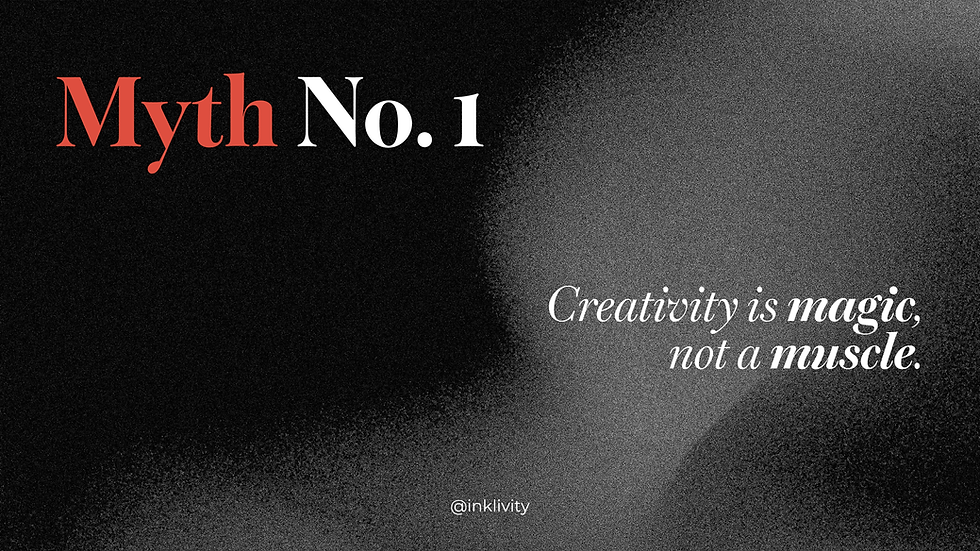Leading "Potential" for Long-Term Success
- Sarah Shaw
- Jul 8, 2024
- 4 min read
We're enamored with making it big early.
I recently came across an America's Got Talent clip of a five-year-old prodigy drummer. The comment section contained the usual list of characters. Lots of jokes. Some heartfelt paragraphs. Typos left right and center. Some random emojis...
Here's what caught my attention: the pitch of the applause. It was deafening. Not only from the America's Got Talent audience but also from the comment section.
And it left me with mixed feelings.
On one hand, applause is a refreshing change from the angry tirade we typically encounter online. But I am also concerned.
And it's not because I'm against drummers or talent or prodigies. It's not because I'm a wet blanket or a contradictionalist (which is now a word.) I am concerned because, to wear my mental health cap here a minute, children need a chance to be children. (Insert dozens of developmental psychology citations here – specific references linked at the end.)
An observation, if I may:
When children show signs of "potential," as adults, we tend to divert them into a fast-track lane as soon as possible.
We use phrases like, "We just want you to be all you can be," and "It would be a shame to waste all this talent."
Who can argue with that, right? Those phrases feel like a checkmate. I mean, what kind of killjoy do you have to be to contradict them? But there's also something that feels off. And that's because it is off. What's off is our understanding of timing and our motivations when we encounter all-star-level talent.
Simple stuff, right? Time and motive. Easy peasy.
Let's keep on digging.
If you're a regular reader of this blog or my *Re-Thinker newsletter, you'll know I like getting to the root of things. And sugar-coating doesn't help. I say that to preface the following. I've spent my entire professional life working with children (starting at age fourteen), and my thoughts about encountering "potential" in children come from a place of deep love for them. Out of that love, here is my concern.
We think child sacrifice is a thing of the past, something to be found in history books. No so. We may not have stone tables with looming images of deities overhead, but child sacrifice doesn't have to look like a Hollywood ceremony to be present in the twenty-first century. It takes place in the hum-drum, daily decisions of prioritizing our needs, our desires, and our dissatisfactions with our own lives over the necessary development of our children.
"Care" becomes cruel when care refuses
to accept another's needs.
And so, with that, let's talk a bit––have an adult heart to heart––about how to steward potential when we see it in the next generation.
First off, what not to do.
1. Worship Them
This probably sounds super weird. Bear with me. There's logic ahead.
Here's the Merriam-Webster definition of worship: 1. to honor or show reverence for as a divine being or supernatural power 2. to regard with great or extravagant respect, honor, or devotion.
To really get to the heart of this concept of worship, we have to consider whether we treat children as deities. I'm not saying worshipping children has been our secret plan all along. I think it happens subconsciously. But the question remains, do we functionally, rely on them as if they are gods?
If that sounds too pie in the sky, here's a more practical litmus test.
What am I asking this child to solve for me?
Is it my lack of self-worth? My jacked-up childhood? My fear that the world's going to pieces and this kid is my only hope?
2. Draft "Potential" Into Your Plot
This one ties into the previous point. So I'll be succinct.
Often we draft upcoming superstars into our agenda––our plotline. Whether that's the plot of becoming the next groundbreaking company or the undoing of generations of family failures. You name it. We've all got a plot. But when we pull "potential" into our narrative, it doesn't challenge us to do the deeper, harder, more meaningful work of helping them with their story. We make their existence about us––when really, we should be serving them.
3. Speed Them Up
To reiterate the opening line of this whole thing: we're enamored with making it big early. We all want things fast. And it's often our impatience, upon encountering talent, that drives us to speed up development beyond the organic pace that creates true strength. We want a hot-pocket rockstar, not a bottle of wine that needs time to age.
So...what are some different ways we can lead "potential" when we spot it in the next generation?
1. Don't Worship Them. Love Them.
Love has the long game in mind. It asks, "How is my leadership setting up this person for long-term success?" It isn't making decisions based on personal, self-serving plotlines. It is available to bless and challenge "potential" with the life they've been given to live. And to live it well.
2. Help Them Navigate Their Story
This one speaks for itself, but show up and invest in their lives. One of the best fictional examples I've seen of a leader moving from drafting "potential" into their plotline to helping them with theirs is captain John Silver from Disney's Treasure Planet.
3. Embody a Non-Anxious Presence
This term, non-anxious presence, comes out of Bowenian Family Systems Theory. You can do further reading on this idea in Edwin Friedman's phenomenal book, A Failure of Nerve, but the core concept is in the wording: lead potential with a non-anxious presence.
In closing, I think we have an incredible opportunity, as leaders, when we encounter "potential." We have the opportunity to lead them well.
References (as promised):
Developmental Psychology:
The Six Needs of Every Child, by Olrick and Olrick
The Whole Brain Child, by Dr. Dan Siegel
Fictional Examples of Leading Potential Well:
Treasure Planet, (Captin John Silver)
Good Will Hunting, (Sean)
Additional Reading:
The Anxious Generation, by Jonathan Haidt
A Failure of Nerve, by Edwin Friedman











Comments